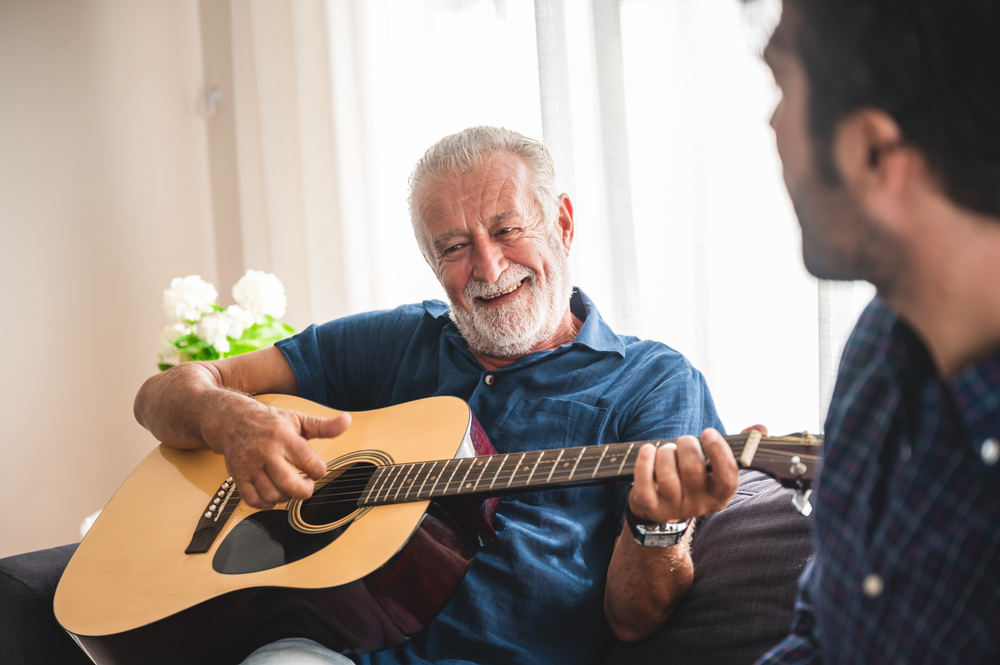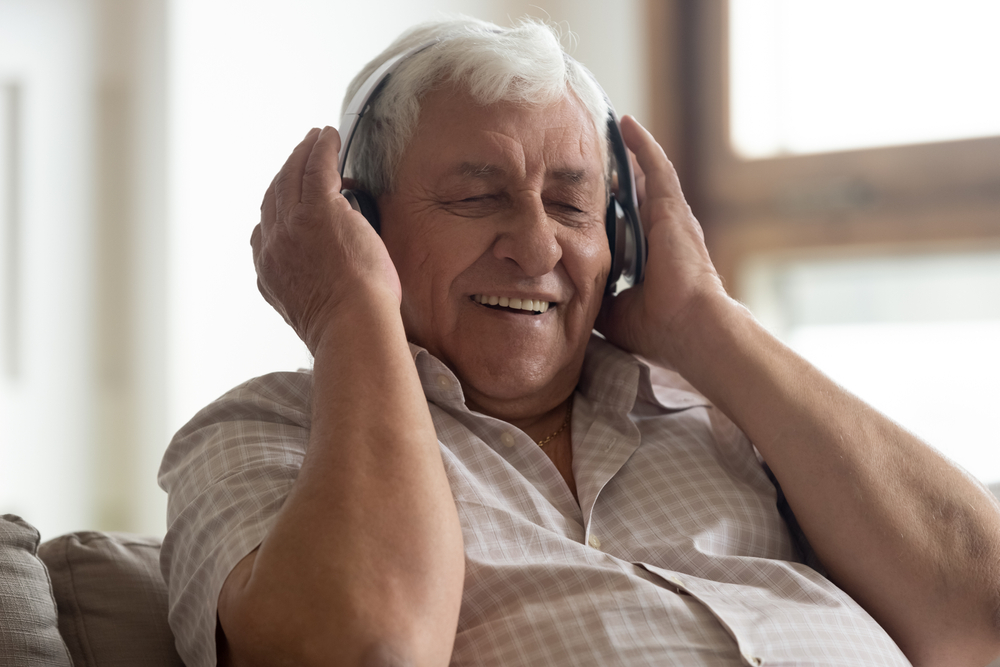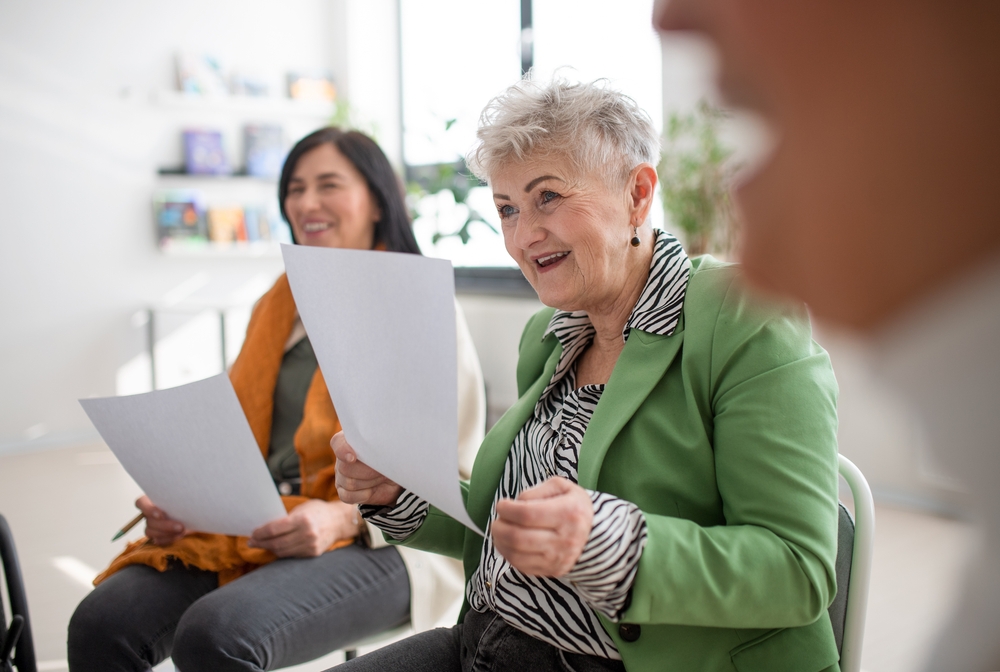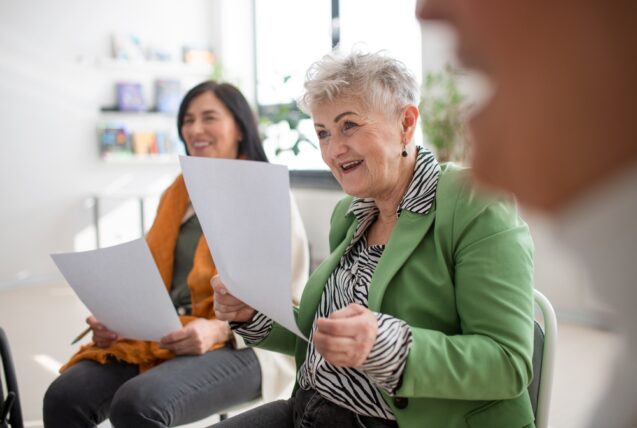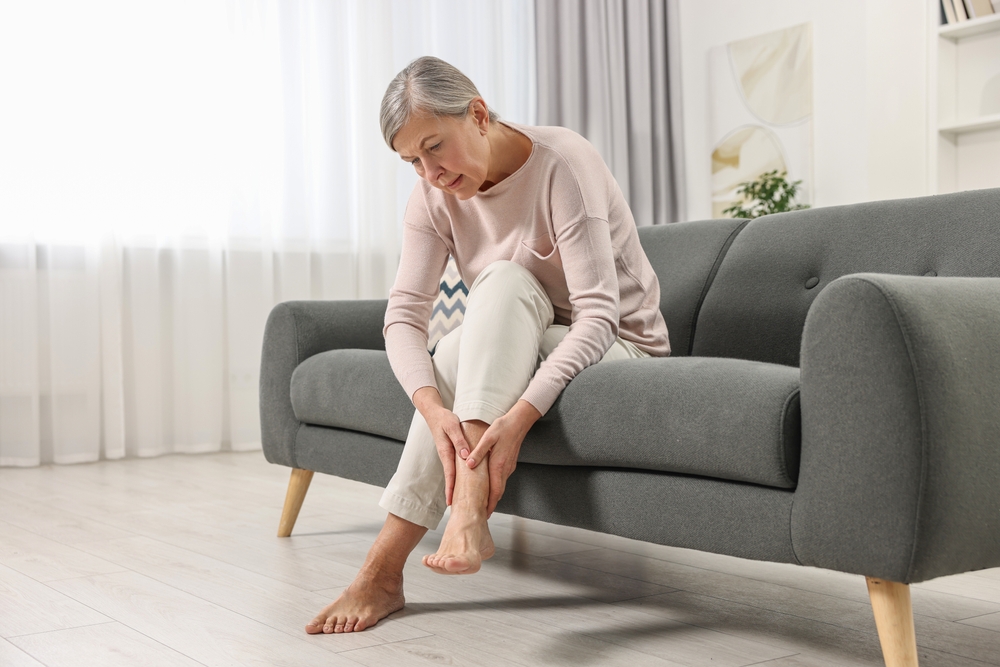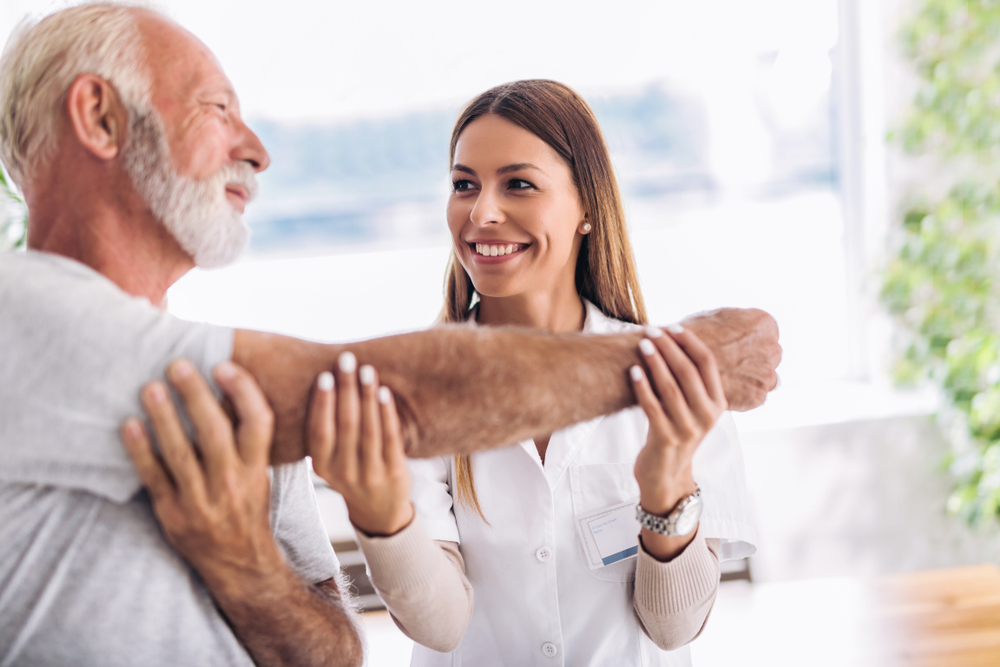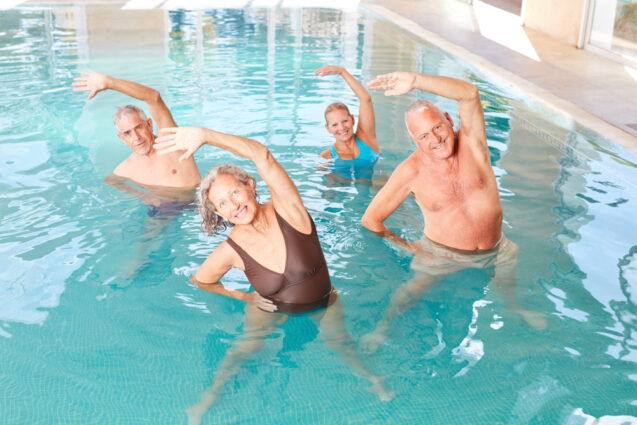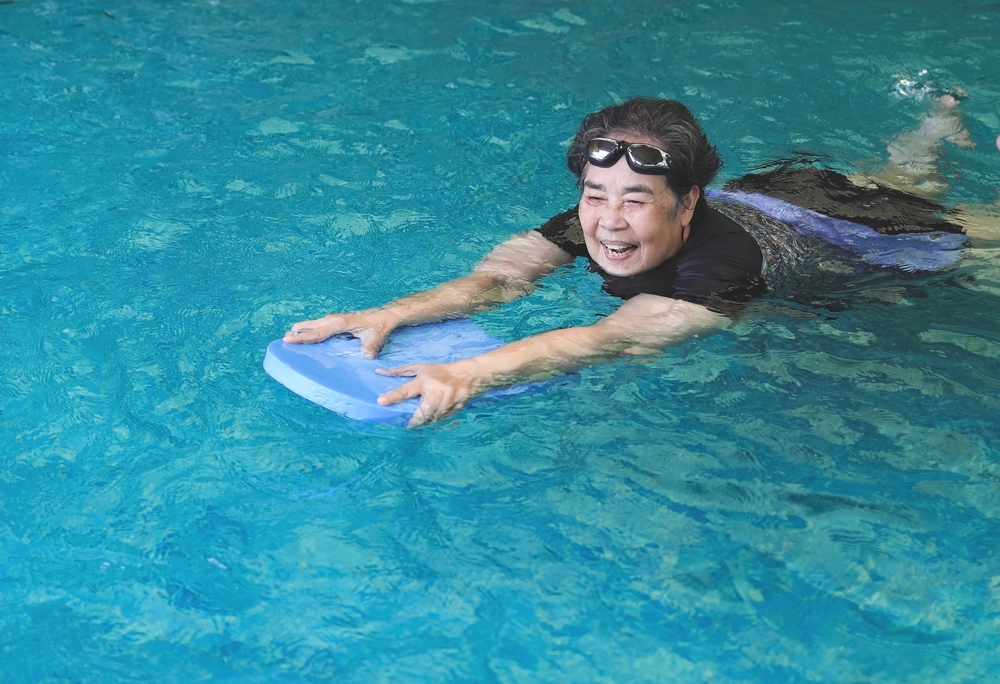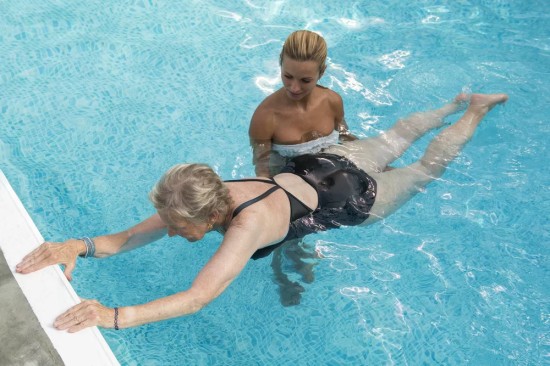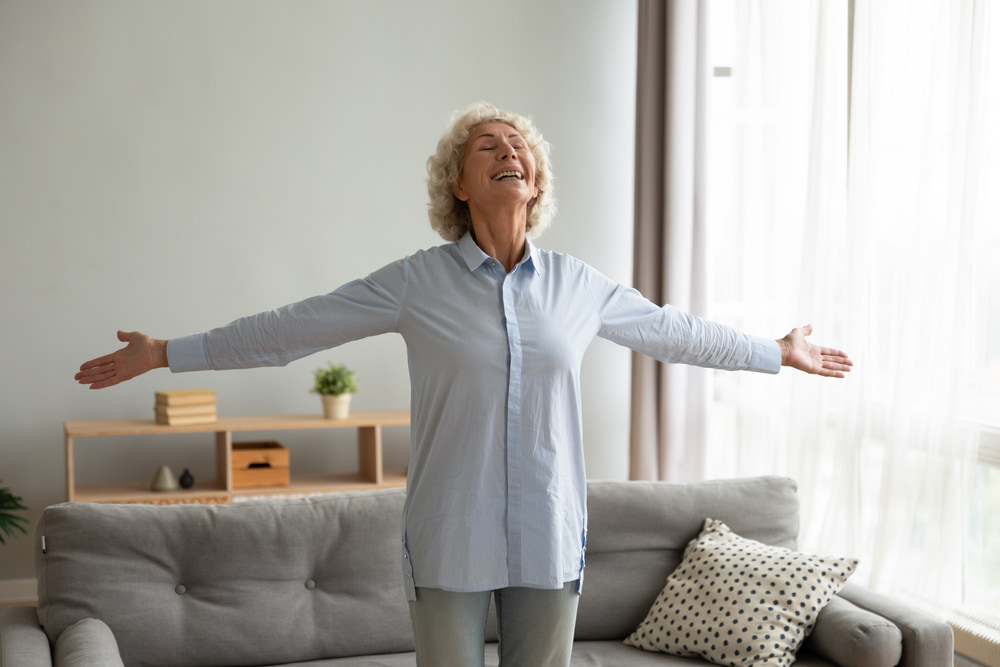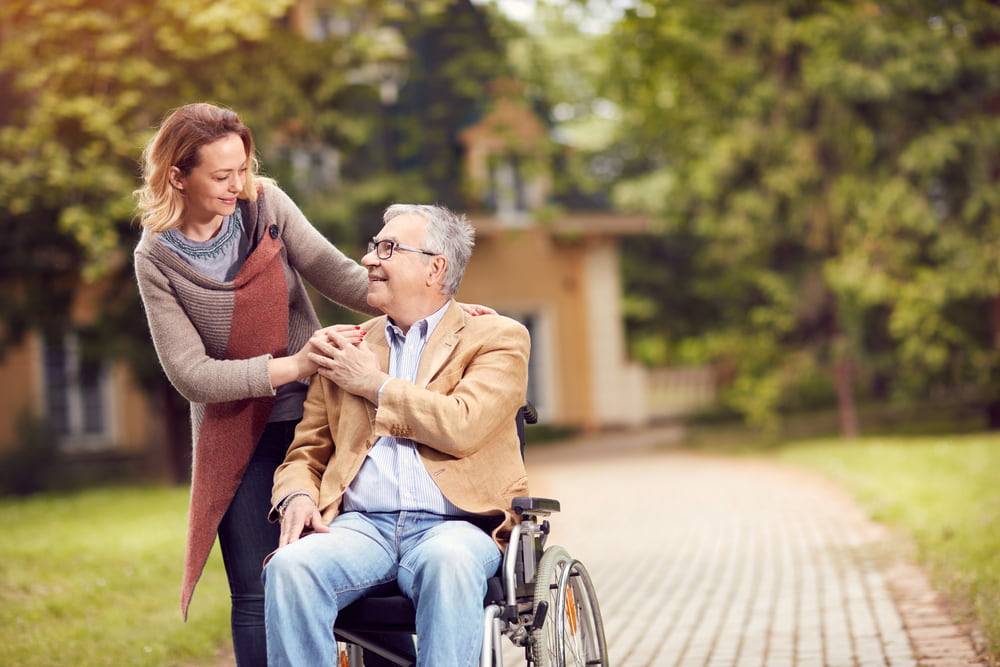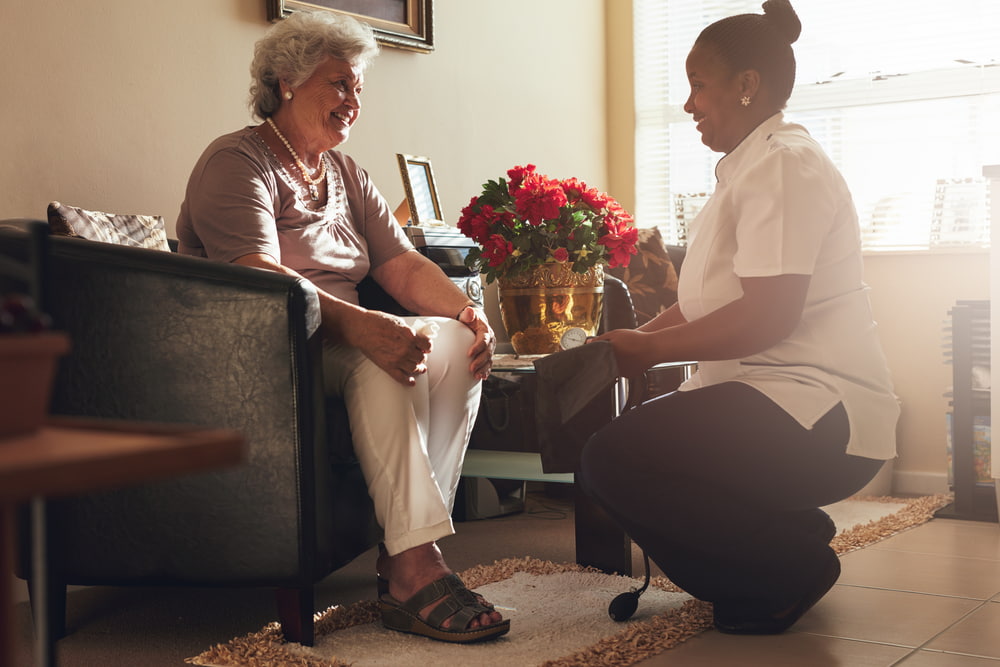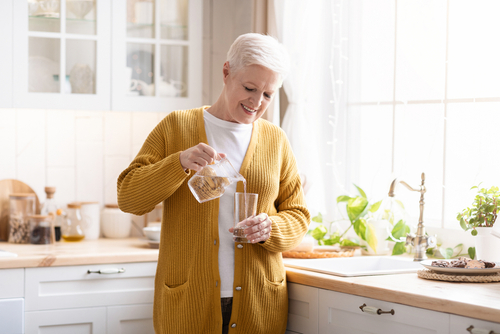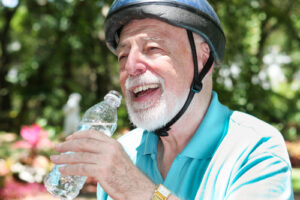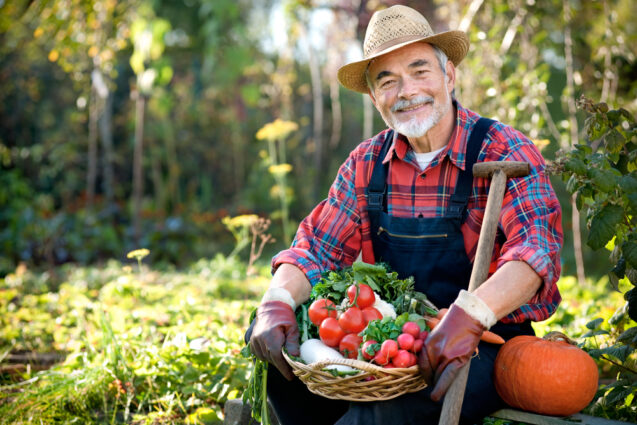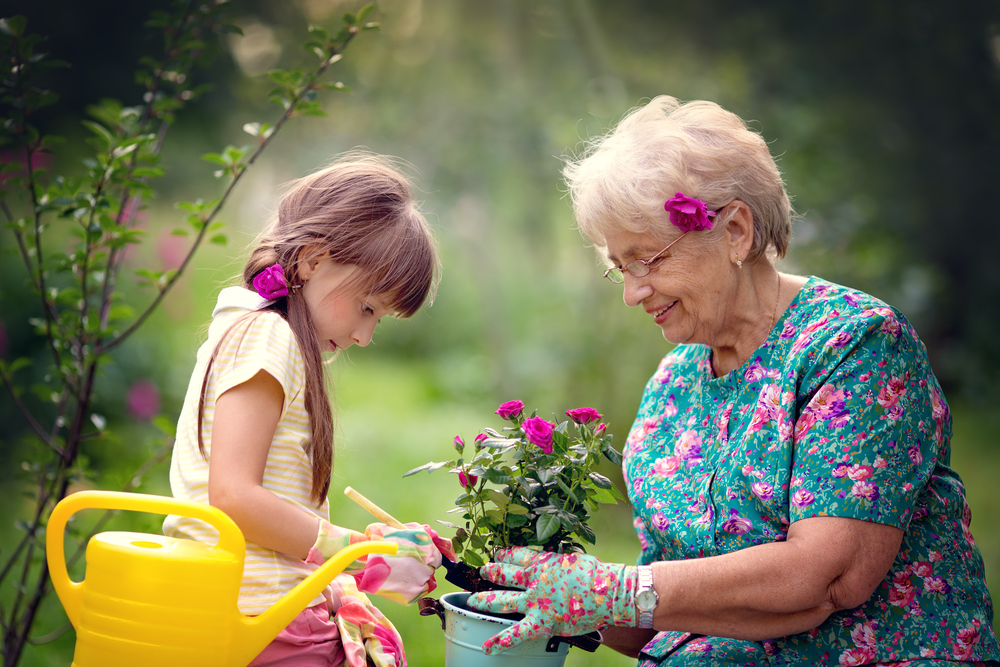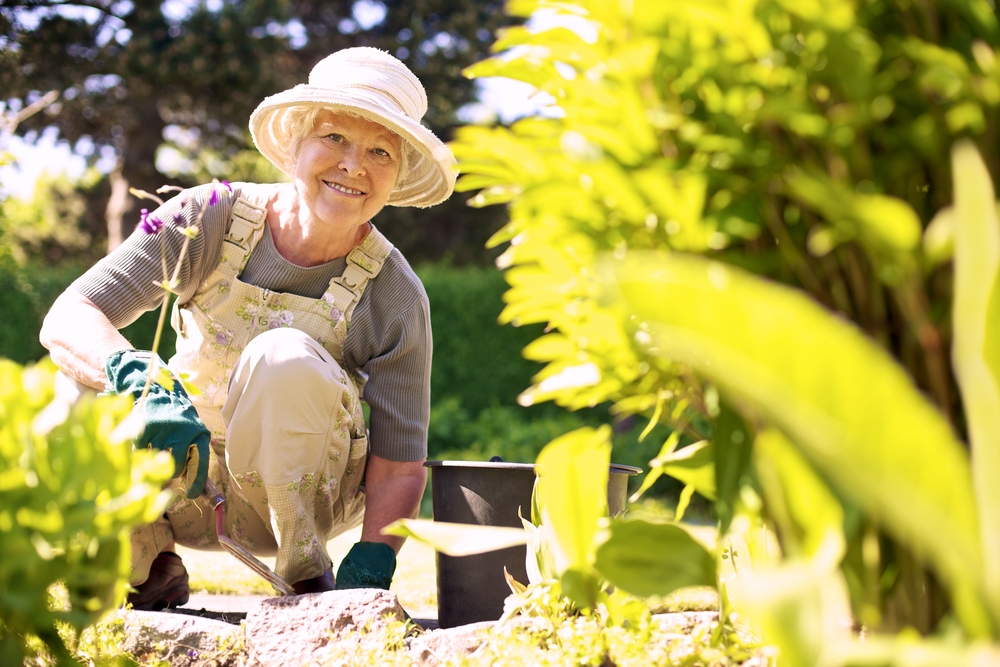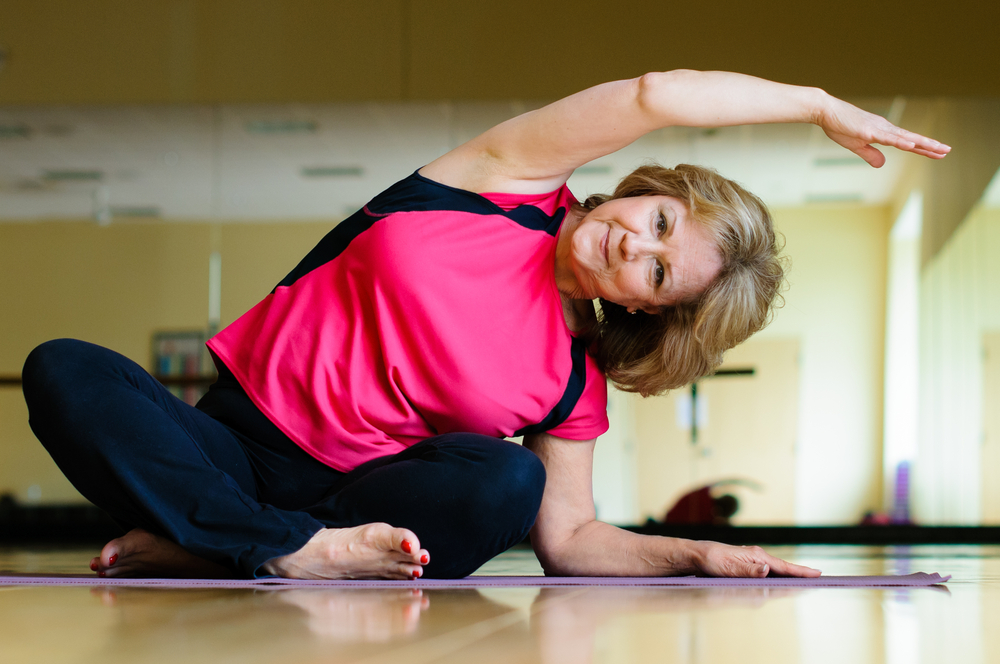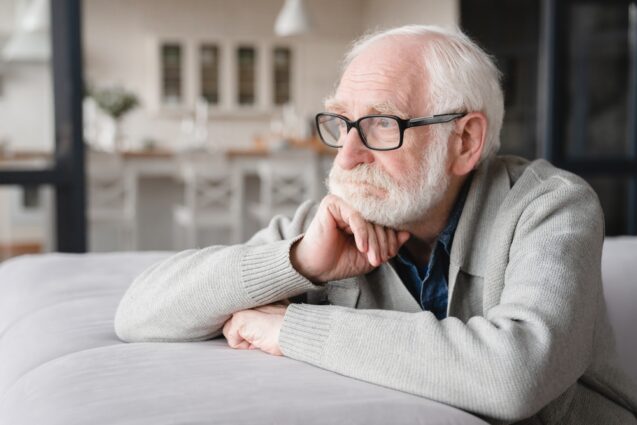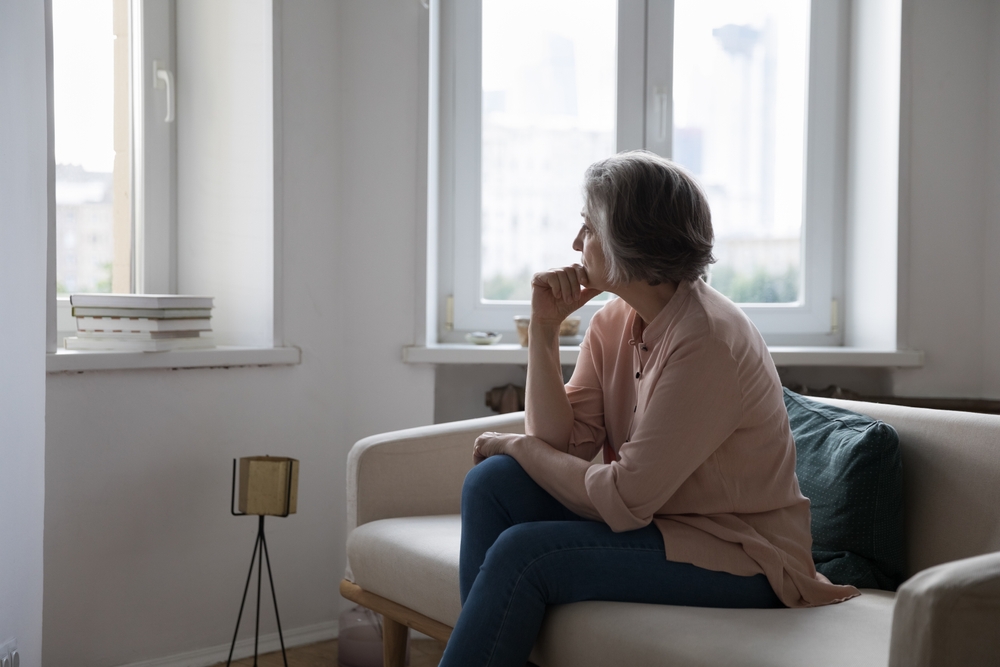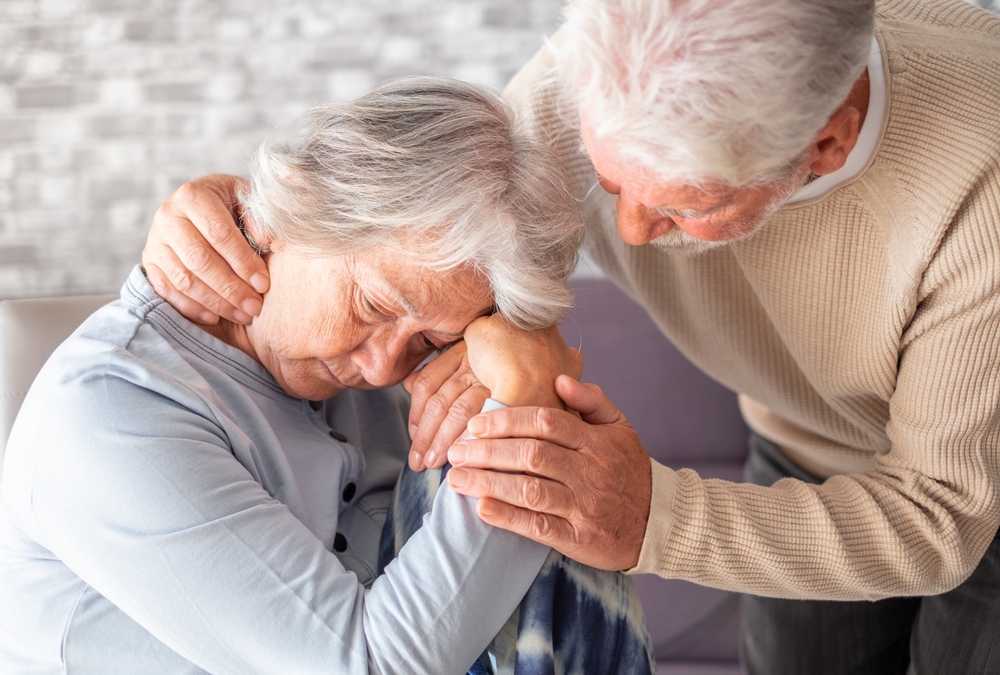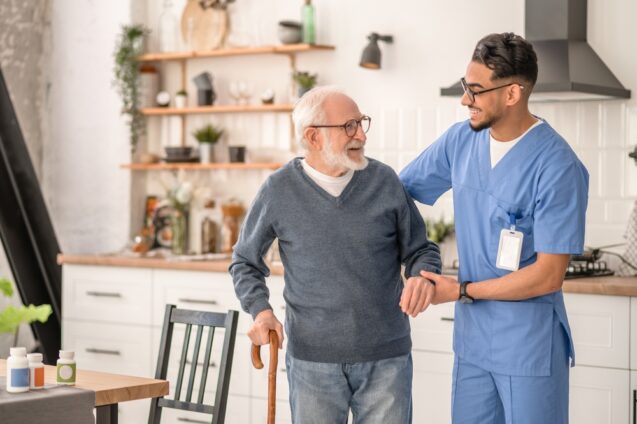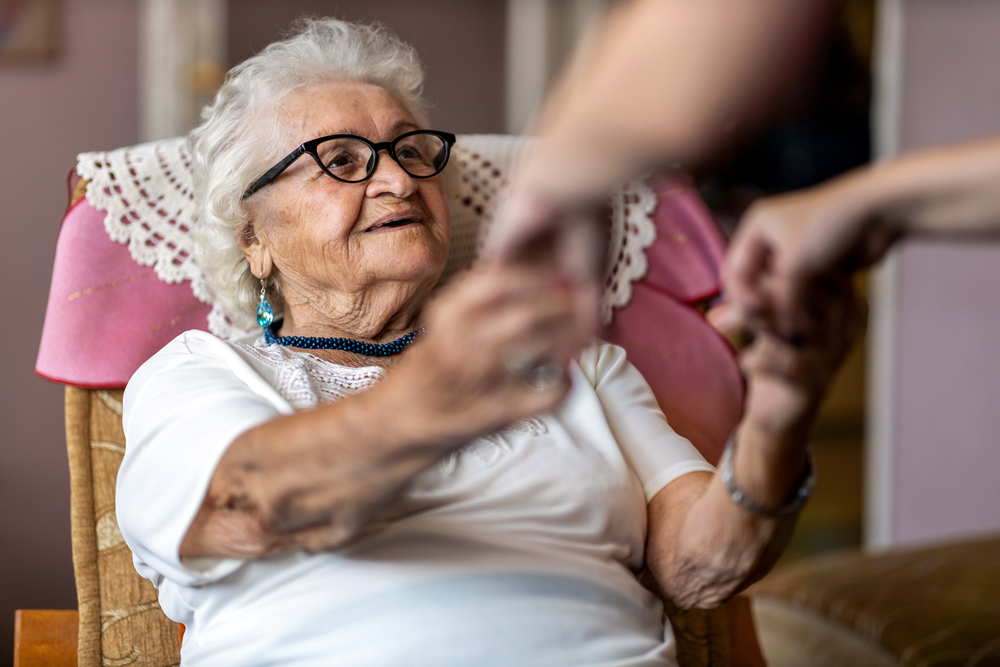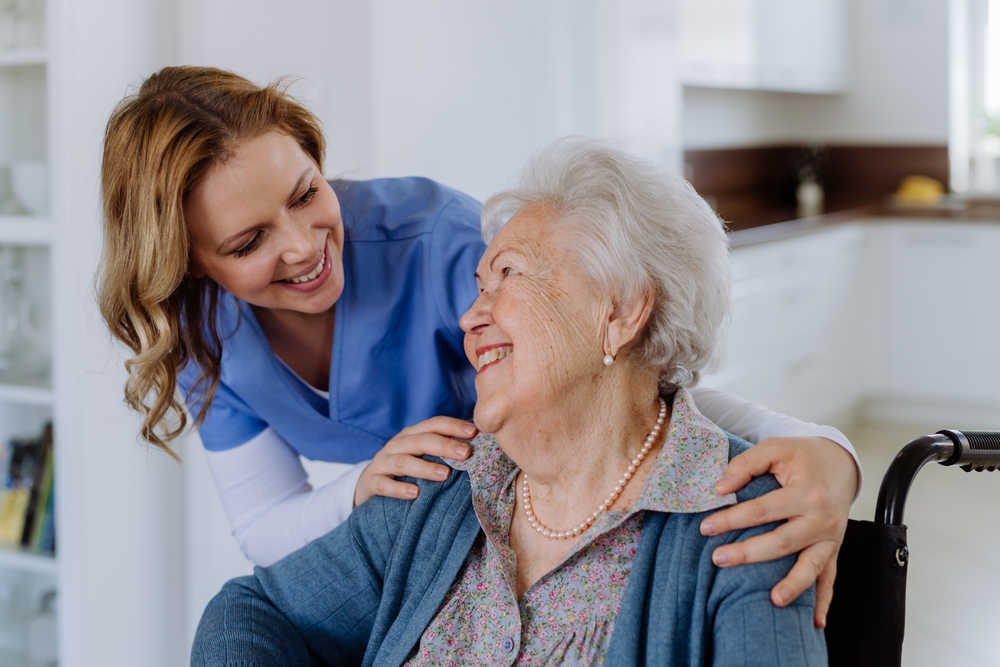As we age, our needs change, and finding ways to enhance the quality of life becomes crucial. One powerful, yet often underappreciated, tool in senior care is music therapy. This therapeutic approach uses the power of music to address physical, emotional, cognitive, and social needs, which makes it an invaluable part of senior care.
Some professionals in West Hollywood who specialize in in-home care use music as a part of their approach. Let’s learn all about the benefits of music for the elderly.
How does music therapy help the elderly?
Music therapy involves the use of music by a trained therapist to achieve individualized goals. It’s not just about playing songs; it’s a clinical and evidence-based practice. Music therapists are trained to understand how music affects behavior, mood, and cognitive functions. They use this knowledge to design sessions that cater to the specific needs of their clients.
1. Cognitive benefits
Music has a unique ability to stimulate the brain. For seniors, especially those with cognitive impairments like dementia or Alzheimer’s disease, music therapy can enhance memory recall, improve attention and the will to learn, and reduce confusion. Familiar songs can trigger memories and emotions, helping seniors feel more connected to their past and more engaged in the present.
2. Emotional and psychological benefits
Aging often comes with emotional challenges such as depression, anxiety, and loneliness. Music therapy can significantly improve mental health by providing an emotional outlet. Singing, playing instruments, or even just listening to music can lift spirits, reduce stress, and foster a sense of accomplishment and self-worth.
3. Physical benefits
Engaging with music can also have physical benefits. Rhythmic elements of music can aid in motor skills and coordination. Activities like drumming or dancing help with physical exercise, improving mobility and strength. Music therapy can also assist in pain management by diverting attention and providing a comforting distraction.
4. Social benefits
Music therapy often involves group activities, which can enhance social interaction. Seniors participating in group music sessions can build relationships, share experiences, and feel part of a community. This social interaction is vital for mental health and can reduce feelings of isolation.
Practical applications of music therapy
Let’s take a look at the different ways that these sessions can be organized:
1. Group sessions
Group music therapy sessions in senior living communities or nursing homes can include singing circles, instrument playing, and music appreciation. These sessions encourage social interaction and provide a communal activity that everyone can enjoy together.
2. Individual therapy
For seniors with more specific needs, one-on-one sessions can be tailored to address particular cognitive or emotional issues. Personalized playlists, composed of meaningful songs, can evoke positive memories and emotions, providing comfort and joy.
3. Integration with other therapies
Music therapy can be integrated with other therapeutic activities such as physical therapy or occupational therapy. For instance, rhythmic music can be used to improve gait and coordination during physical exercises.
How to incorporate music therapy
For those caring for seniors at home, incorporating music therapy doesn’t require professional training. Simple steps include:
- Creating playlists: Compile playlists of favorite songs or genres. Include a mix of soothing tunes for relaxation and upbeat tracks for energy.
- Encouraging participation: Invite your loved one to sing along or play simple instruments like tambourines or maracas.
- Using music for routine activities: Play background music during daily routines to make tasks more enjoyable and less stressful.
Where in West Hollywood and the surrounding area can I find quality in-home care?
Transform the lives of your senior loved ones with comprehensive care services that we find for you at A Better Way In Home Care. The trained caregivers we connect you with offer a variety of different tasks that can make your senior loved one’s life easier, from walks and taking them to water therapy to helping them with personal grooming.
Whether your elderly loved one lives close to Hollywood Boulevard or in another part of West Hollywood, we can find the right professional for them. Reach out to us today to learn how we can help bring joy and improve the well-being of your elderly loved ones.
More
Chronic pain, defined as pain lasting longer than 12 weeks, is a significant concern for many seniors. It can impact mobility, sleep, mood, and overall quality of life. While it’s a common issue, it’s not an inevitable part of aging, especially if you rely on professional home care in Los Angeles for help. Understanding the causes and exploring various management strategies can empower seniors to find relief and regain control of their lives.
What is the most common cause of chronic pain in older adults?
Arthritis, a condition characterized by inflammation and wear-and-tear of the joints, is the leading cause of chronic pain in seniors. Osteoarthritis, the most common type, typically affects weight-bearing joints like the knees, hips, and spine. However, other conditions like fibromyalgia, neuropathy (nerve damage), and back problems also contribute significantly to chronic pain in the elderly population.
How to manage chronic pain in the elderly?
Managing chronic pain in seniors requires a multi-faceted approach that addresses both the physical and emotional aspects of the condition. Here are some key strategies:
- Medical evaluation and treatment: It’s crucial for seniors experiencing chronic pain to consult with their doctor to determine the underlying cause and discuss appropriate treatment options. This may include medications, physical therapy, or other interventions.
- Physical activity and exercise: While it might seem counterintuitive, staying active can be a powerful tool for managing chronic pain. Low-impact exercises like walking, swimming, or tai chi can improve strength, flexibility, and range of motion, which can alleviate pain and stiffness.
- Physical therapy: A physical therapist can design a personalized exercise program to address specific pain areas and improve mobility. They can also teach techniques for managing pain, such as stretching and relaxation exercises.
- Hot and cold therapy: Applying heat (e.g., warm baths, heating pads) can relax muscles and improve blood flow, while cold therapy (e.g., ice packs) can reduce inflammation and numb pain.
- Mind-body techniques: Practices like yoga, meditation, and deep breathing exercises can help manage pain by reducing stress, promoting relaxation, and improving coping mechanisms.
- Alternative therapies: Some seniors find relief through complementary therapies like acupuncture, massage therapy, or chiropractic care.
- Emotional support: Chronic pain can take a toll on mental health, so seeking emotional support through counseling or support groups can be beneficial.
It’s important to note that pain management is highly individual, and what works for one person may not work for another. It often involves a combination of approaches and ongoing adjustments based on individual needs and responses.
If they work closely with healthcare providers and explore various strategies, seniors can find effective ways to manage chronic pain, improve their quality of life, and rediscover the joy of movement and activity. They can even become encouraged to try out different interesting activities like music therapy or relaxing aqua therapy, which could remind them how valuable lifelong learning and new experiences are.
How can I find dependable home care in Los Angeles and the surrounding area?
If chronic pain is making daily tasks a challenge for you or a loved one, remember that you don’t have to navigate this journey alone. At A Better Way In Home Care, we understand the unique needs of seniors facing chronic pain. Our compassionate team specializes in connecting seniors with experienced caregivers who can provide personalized support and assistance in the comfort of their own homes.
Whether it’s help with daily activities, transportation to medical appointments, or simply a comforting presence, the caregivers in our database are dedicated to improving the quality of life for seniors with chronic pain. Let us help you find the right caregiver to meet your or your elderly loved one’s specific needs and preferences.
Whether you live close to the Griffith Observatory or in the center of Los Angeles, we’re here to help. Contact us today to learn more about our services and how we can support you on your path to pain relief and well-being.
More
As we age, our bodies undergo natural changes that can sometimes make traditional forms of exercise less accessible or even painful. Joint stiffness, arthritis, and balance concerns – these challenges can make staying active feel like an uphill battle. However, the importance of maintaining physical fitness and overall well-being doesn’t diminish with time.
If you’re in Los Angeles, you or your aging loved one might already be using professional home care, which might include exercise. This is where aqua therapy steps in, offering a refreshing and effective solution for seniors who want to stay active, healthy, and happy.
Is hydrotherapy good for the elderly?
Hydrotherapy, also known as aquatic therapy or pool therapy, is a form of exercise that takes place in a warm-water pool. This unique environment offers a multitude of benefits that are particularly well-suited for seniors:
- Reduced joint stress: The buoyancy of water significantly reduces the impact on joints, making movement easier and less painful. This is a game-changer for seniors dealing with arthritis, osteoporosis, or other joint conditions.
- Enhanced strength and mobility: While water provides gentle support, it also offers resistance that can help build muscle strength and improve flexibility. Simple exercises like walking, arm circles, and leg lifts become effective strength-training tools in the water.
- Improved balance and coordination: The aquatic environment challenges the body to maintain balance, leading to improved stability and coordination. This can be particularly beneficial for seniors who are at risk of falls.
- Cardiovascular fitness: Aqua therapy provides a safe and effective way to get the heart pumping and improve cardiovascular health. The water’s resistance naturally elevates the heart rate, promoting circulation and strengthening the heart and lungs.
- Pain relief and relaxation: The warmth of the water soothes muscles and joints, reducing pain and stiffness. At the same time, gentle movements and buoyancy promote relaxation, which can be especially helpful for seniors with chronic pain conditions like fibromyalgia.
What is pool therapy for geriatric patients?
Pool therapy for geriatric patients, or aqua therapy tailored specifically for seniors, involves a variety of exercises and activities designed to address the unique needs and challenges of aging bodies. These programs are often led by trained therapists who understand the specific needs of older adults.
Here are some examples of exercises commonly included in geriatric pool therapy:
- Water walking: Walking in water provides a low-impact cardiovascular workout that strengthens the legs and core muscles.
- Arm exercises: Bicep curls, tricep extensions, and other arm movements using water resistance help build upper body strength.
- Leg exercises: Leg lifts, knee extensions, and water jogging improve lower body strength and flexibility.
- Balance exercises: Activities like standing on one leg or walking on a floating mat challenge balance and coordination.
- Stretching: Gentle stretches in the water improve flexibility and range of motion.
Pool therapy programs often incorporate fun and social elements, such as water aerobics classes or games, to make exercise enjoyable and engaging for seniors. This can encourage them to keep learning new things regardless of their age. They might get interested in more helpful activities such as music therapy.
Where in Los Angeles and the surrounding area can I find reliable home care?
At A Better Way In Home Care, we believe that aging in place should be a comfortable and fulfilling experience. We connect you with compassionate caregivers who are dedicated to providing personalized assistance that enhances the lives of seniors. Whether it’s assistance with daily activities, companionship, or transportation to appointments, the caregiver we match you with is here to support you every step of the way.
We understand that every individual is unique, which is why our care plans are tailored to your specific needs and preferences. Our caregivers are not only experienced and skilled but also genuinely caring individuals who are passionate about making a positive difference in the lives of seniors. From Angels Flight to the rest of Los Angeles, we cover the entire area.
Let us help you create a comfortable and joyful environment where you or your aging loved one can thrive. Contact us today to learn more about what we can do for you and your family!
More
Most people would like to imagine themselves living an independent and relatively worry-free life as they age. As you can imagine, this is largely dependent on how you organized your life, how well you earned before retiring, your general health, and a variety of other factors. Nevertheless, you can put your faith in reputable in-home caregivers to step into your shoes and help you out in times of need.
Regardless of how you accommodate your elderly, the question remains: how can you help them overcome their feelings of weakness and frailty? Read on to learn how to help the elderly feel empowered.
What does empowerment mean for the elderly?
Living life as an elderly person can be difficult. You may feel like you can’t do the things you used to. It can be difficult for the elderly to feel self-sufficient when they often find themselves in a position of dependence.
Relying on others can greatly help if they are worried about their safety. However, to a certain degree, they can feel as if they’re robbed of their dignity. What is a true example of empowering someone in need of help? And why is encouragement so important for elderly people?
What is an example of empowerment?
Empowered aging means having the ability to take care of oneself, make independent decisions, and maintain control over one’s life without relying on others. At a younger age, the example of empowerment is: getting a job, being able to drive, or learning to cook. For certain disenfranchised groups, empowerment has even more meanings.
Empowering seniors is vital to their recovery, and it may be as simple as:
- Treating them with respect and withholding judgment
- Being consulted before changes are made to their care plan
- Cultivating a relationship where they feel safe to express their feelings and desires
- Being given the opportunity to do things for themselves whenever possible
- Focusing on their strengths and abilities
- Encouraging their participation in decision-making processes
- Respecting their choices about their own lives
Why is empowerment important to the elderly?
Feeling empowered as you age fosters a sense of autonomy, dignity, and self-worth. When seniors feel empowered, they are more likely to take an active role in their own lives, making decisions that affect their daily activities, health, and well-being. This sense of control can significantly enhance their quality of life, as it reduces feelings of helplessness and dependency.
Empowerment also encourages continued engagement in social, physical, and cognitive activities, which are vital for maintaining mental and physical health. By respecting their choices and encouraging independence, caregivers and family members can help elderly individuals live more fulfilling and satisfying lives.
How does empowerment improve seniors’ health?
By promoting their active participation in their own care and lifestyle choices, you can provide seniors with a sense of empowered aging. They will then be more likely to embrace positive behaviors such as regular physical activity, healthy eating, and following their medical regimens. This proactive approach can help them manage chronic conditions more effectively and lower the risk of health complications.
Moreover, empowerment enhances mental health by fostering a positive outlook and reducing stress, anxiety, and depression. Social empowerment, through involvement in community activities and maintaining social connections, further contributes to emotional well-being. Overall, these lead to better physical and mental health, ultimately elevating their overall quality of life.
How does empowerment relate to elderly resilience?
While empowerment is more about taking control and making decisions, resilience is the ability to adapt to change and bounce back from difficult situations. Empowering seniors can help them to feel resilient in the face of difficulties. When they feel like they have a say in what happens to them, they are more likely to be able to cope with changes.
What is empowerment and disempowerment in aged care?
Help for older individuals can be delivered in diverse contexts, potentially impacting their sense of self-reliance, capability, and free-will. In some cases, it may be necessary for safety reasons. However, it is important to consider how this will affect the elderly person’s sense of self.
Aged care that is empowering will seek to promote the independence of the elderly person as much as possible. On the other hand, disempowering aged care takes away choices and decision-making from the elderly person. It can make them feel like they are a burden, and that their opinions don’t matter. Here are a few examples:
1. Ignoring preferences
It’s pretty disheartening for seniors when the people looking after them ignore what they like, whether it’s about what they want to eat, what they want to wear, or when they prefer to sleep. This kind of oversight can make them feel like their choices don’t matter at all.
2. Excessive control
Overly controlling behaviors can prevent them from having a say in their own healthcare, financial choices, or day-to-day schedules. This often means they’re not included in critical discussions, which significantly affects their lives.
3. Infantilization
It’s deeply disrespectful to treat elderly adults as if they were children—speaking to them in a patronizing tone, making choices on their behalf without their consent, or oversimplifying how we speak to them. Such actions can significantly undermine their dignity and self-esteem, making it crucial to interact with them as the capable adults they are.
4. Lack of privacy
Walking into their personal space without warning or discussing their health and private matters in public can undermine their dignity. Everyone deserves their own space and the chance to keep certain things private, no matter their age.
5. Physical restraints
Using physical restraints or sedatives just to make caregiving a bit easier, instead of really getting to the bottom of what the senior needs or why they’re acting a certain way, isn’t the right approach. It overlooks the real issues they might be facing.
How do you empower elders?
People can still feel empowered as they age if they have a sense of independence, good quality of life, and their dignity. Here are some of the best ways for empowering seniors:
- Encourage independence: Support them in performing daily tasks on their own, offering assistance only when necessary. This fosters a sense of autonomy and self-reliance.
- Involve them in decision-making: Include them in decisions that affect their lives, from healthcare choices to daily routines. Respecting their opinions and preferences helps them feel valued and in control.
- Provide education and information: Educate them about their health conditions, treatment options, and available resources. Knowledge empowers them to make informed decisions about their care.
- Promote social connections: Encourage them to stay socially active by participating in community events, joining clubs, or maintaining regular contact with family and friends. Social engagement can boost their emotional well-being and sense of belonging.
- Adapt their environment: Modify their living space to enhance safety and accessibility. Simple changes like installing grab bars, improving lighting, and reducing clutter can help them navigate their home more confidently.
- Encourage physical activity: Promote regular physical activity tailored to their abilities. Exercise can improve their physical health, mood, and overall quality of life.
- Support lifelong learning: Encourage them to pursue hobbies and interests or take up new ones. Engaging in mental and creative activities can keep their minds sharp and provide a sense of accomplishment.
- Respect their privacy and dignity: Treat them with respect and dignity, honoring their need for privacy and personal space. This fosters a sense of self-worth and respect.
- Offer emotional support: Be there to listen and provide emotional support. Acknowledge their feelings and experiences, which can help them feel understood and valued.
- Assist with technology: Help them learn and use technology to stay connected with loved ones, access information, and manage daily tasks. Technology can open up new opportunities for socialization and convenience.
How can empowerment be facilitated when providing support?
There are many ways caregivers can help their elderly client feel supported. Here’s how you can empower an elderly person:
1. Tackle ageism together
Reframing old age is key to entering the process of empowerment. You can do this by challenging the negative attitudes and stereotypes that exist about old age. Instead of viewing it as something negative, you can embrace it as a natural process that can be experienced in a productive and welcoming manner.
2. Acknowledge their expertise
The elderly are often not given enough credit for their years of experience. Acknowledge what they know and ask for their advice. This will help them feel valued and respected.
3. Use empowering language
The way you talk to and about the elderly person can have a big influence on how they feel about themselves. Caregivers who use language that is positive and respectful are more likely to earn their trust and respect and remind them of their self-worth.
4. Promote inclusion
Social isolation is a big problem for the elderly. Caregivers can provide excellent company and help them feel included by promoting social activities and opportunities for connection.
5. Help them stay connected
Technology can be a great way for the elderly to stay connected with the world. Help them to set up social media accounts, video call their friends and family, or find online groups that share their interests. This way, they won’t miss out, and will feel like they have a purposeful life.
6. Encourage self-care
Encouragement is important for the elderly, and this may be especially true when it comes to self-care. Help them to find ways to take care of themselves that work for them. This could include things like exercising more frequently, finding ways to relax, and taking a more health-conscious approach to their dietary habits.
7. Make everyday routines simple
Many everyday tasks can become more difficult as we age. You can help by breaking down tasks into simpler steps, or by helping them to find ways to make their lives easier.
8. Support their hobbies and interests
Helping elderly people to pursue their hobbies and interests is a great way to empower them. This can give them a sense of purpose and help them to feel more connected to the world.
Where in Los Angeles can I hire experienced in-home caregivers?
Here at A Better Way in Home Care, we can match you with some of the most dedicated and trustworthy caregivers in Los Angeles County, including excellent senior care in Beverly Hills and the surrounding areas. It doesn’t matter which part of LA you live in: we can help seniors accomplish a range of household tasks and make your everyday life easier.
In case you’re questioning the value of using a professional referral agency or wondering about payment options for senior care, feel free to reach out. We’ll respond to all your questions and create an extensive care plan, whether it involves continuous care or just sporadic visits to your elderly loved one. We’ll be there to assist them with grooming, light cleaning, medication adherence, doctor’s visits, and other routine activities.
Call us today and we’ll gladly match you with someone!
More
As we age, our bodies often require additional support to maintain optimal health, leading many elderly individuals to turn to dietary supplements. These supplements, which can include vitamins, minerals, and other nutrients, are intended to bolster health where the diet may fall short.
However, while they offer potential benefits, their impact on older people’s health is not always straightforward, and professionals in Westwood, experienced in senior care, know this very well. This blog explores the nuanced roles that dietary supplements can play in the lives of older adults, examining both the benefits and the challenges they may face when incorporating supplements into their daily regimen.
What problems might older adults encounter with dietary supplements?
Dietary supplements can sometimes pose unique challenges for older adults. One major concern is the risk of interactions between supplements and prescribed medications. Many older adults manage chronic conditions with medication, and certain supplements can alter drug efficacy or lead to adverse reactions. For instance, vitamin K can reduce the effectiveness of blood thinners, which could pose serious health risks.
Additionally, the body’s ability to absorb and utilize nutrients efficiently can decline with age, affecting how well dietary supplements are metabolized. This might require some dosage adjustments that aren’t always well-documented on standard labels, which can lead to potential overconsumption or underconsumption. Overconsumption of fat-soluble vitamins like A, D, E, and K, for example, can lead to toxicity.
Finally, the regulatory environment for dietary supplements is less strict than for pharmaceuticals, which may result in inconsistencies in product quality and potency. Without stringent standards, the elderly might consume products that don’t contain the advertised levels of nutrients, or worse, contain harmful contaminants.
Why might an elderly person benefit from taking a supplement?
Despite these challenges, there are compelling reasons why dietary supplements might be beneficial for elderly individuals. As the digestive system ages, it becomes less efficient at extracting nutrients from food, leading to potential nutritional deficiencies that can impact overall health and vitality, from cardiovascular health to better and healthier sleep patterns.
Supplements can help fill these gaps, ensuring that the elderly receive the essential nutrients they need. Vitamin D, for example, is critical for bone health and is commonly recommended for older adults to help maintain bone density and reduce the risk of fractures, particularly as natural synthesis decreases with reduced sun exposure and aging skin.
Moreover, certain supplements are known to support cognitive function and may slow the progression of age-related mental decline. Omega-3 fatty acids, vital for brain health, have been shown to help preserve memory and cognitive functions, potentially reducing the risk of neurodegenerative diseases like Alzheimer’s.
B vitamins also play a crucial role in energy production and neurological functions, aiding in the maintenance of nerve health and preventing fatigue, which is especially beneficial in enhancing the quality of life for the elderly.
In addition to these, supplements such as calcium and magnesium support muscle and nerve function, further adding to the daily comfort and mobility of elderly individuals. If they integrate the right supplements into their diet, your elderly loved one can address specific health concerns, boost their immune system, and enjoy a more active, fulfilled life.
Where in Westwood and the surrounding area can I find high-quality senior care?
At A Better Way In Home Care, we understand the unique needs of the elderly. The dedicated caregivers we connect you with can assist in managing and integrating the supplements into your daily care routine. What’s more, they also offer help with medication and consistent hydration reminders, light housework, cooking, walks, personal grooming, bathing, and anything else your elderly loved one might need, all in the comfort of their own home.
Whether the house is close to Royce Hall or in another part of Westwood, we have the right pros for you. If you or your elderly loved one could benefit from professional caregiving in your own space, contact us today to discuss how we can support this journey toward a healthier, fuller life.
More
Staying hydrated is crucial for everyone, but it’s particularly important for older adults. As we grow older, our bodies don’t hold onto water as well, and we might not feel thirsty even when we need to drink. This can easily lead to dehydration, affecting overall health and how well our bodies function.
Professionals experienced in senior care in Westwood are already aware of this, but as an elderly person or someone who cares for one, you should know all about this topic as well. This blog explores the importance of hydration for seniors, highlighting the potential risks of not drinking enough water and offering insights on how to maintain adequate hydration for better health.
Why is hydration so important for seniors?
Hydration is vital for the elderly because water helps the body in many essential ways. It regulates body temperature, keeps blood circulation healthy, and helps the kidneys work properly by flushing out waste. Without enough water, these functions can be compromised, particularly in older adults whose systems are already facing the normal challenges of aging.
Water is also crucial for maintaining brain health. Dehydration can lead to confusion, difficulty concentrating, and forgetfulness, which are particularly concerning for the elderly. Proper hydration supports cognitive function, helping to keep the mind clear and alert.
Additionally, water facilitates digestion, preventing problems like constipation by helping to move food through the intestinal tract smoothly. For the elderly with joint issues such as arthritis, staying hydrated helps keep the joints lubricated, which can ease pain and aid mobility.
Furthermore, adequate hydration supports the skin’s elasticity and overall health, which is important as the skin becomes more susceptible to dryness and irritation with age. Proper hydration can also help manage weight, as it helps regulate appetite and boosts metabolism, which often slows down in older adults.
What happens when seniors don’t drink enough water?
Not drinking enough water can lead to serious health issues for the elderly. Dehydration can quickly affect both the mind and body, leading to noticeable symptoms and health risks.
On the mental side, a lack of adequate hydration can cause confusion and extreme tiredness and sleepiness, making it difficult for the elderly to perform daily activities safely. This can increase the risk of falls and injuries, which are particularly dangerous for older individuals.
Physically, not getting enough water can strain the kidneys, which are responsible for filtering out harmful substances from the blood. Over time, this can lead to kidney stones or severe kidney problems. Dehydration also thickens the blood, making it harder for the heart to pump, potentially leading to an increased risk of heart conditions like high blood pressure or even a stroke.
Moreover, a dehydrated body is more susceptible to various infections, such as urinary tract infections, because the immune system’s function is weakened. During hot weather or physical activity, the risk of acute dehydration increases, possibly leading to heat exhaustion or severe hypotension (low blood pressure), which are emergency conditions in the elderly. Chronic dehydration can also contribute to respiratory problems, as the airways become less efficient at managing mucus.
How do I find dependable senior care in Westwood and the surrounding area?
A Better Way In Home Care is here to connect you with experienced and reliable caregivers who can help your elderly loved one in their own home. The professionals we match you with are trained to encourage regular drinking habits and to spot the early signs of dehydration. In addition to this, you can rely on them for everything related to elderly assistance, from medication and dietary supplement reminders to help with personal grooming.
Our service area is wide, from the homes around the Fowler Museum to those in other parts of Westwood and beyond. If you or your loved one needs thoughtful, attentive professionals to help make daily life easier, reach out to us today.
More
Gardening is not just a hobby, it’s a source of profound therapeutic benefits, especially for the elderly. Engaging with nature through gardening can offer physical, mental, and emotional advantages and improve the quality of life for aging individuals. Senior care in Tarzana often includes activities like this, but a lot of the elderly discover the hobby on their own.
It’s a peaceful, yet engaging activity that encourages connection with the natural world, fosters a sense of accomplishment, and promotes overall well-being. Let’s delve into why gardening is particularly beneficial for older adults and how it contributes to their health and happiness.
Why is gardening good for aging people?
Gardening offers significant benefits for the elderly and impacts various aspects of their well-being:
1. Physical health
Gardening is an excellent form of low-impact exercise, which is vital for maintaining muscle strength, joint flexibility, and cardiovascular health. Regular gardening tasks like digging, planting, and weeding encourage the use of motor skills. This can improve hand-eye coordination and fine motor skills, which are crucial for maintaining independence.
2. Cognitive function
The strategic planning and attention to detail required in gardening can improve cognitive functions. Remembering planting schedules, learning about different plant species, and making decisions about garden layout can all engage the brain and keep it active and alert.
3. Emotional well-being
Nurturing plants and witnessing how they grow can offer immense satisfaction and a sense of purpose. For many elderly individuals, gardening becomes a meaningful activity that boosts mood and provides a sense of accomplishment.
4. Stress reduction
The calming nature of gardening, surrounded by greenery and the peaceful sounds of the outdoors, can significantly reduce stress and anxiety levels. This connection with nature helps lower cortisol levels, promoting a more relaxed state of mind and a lower chance of depression.
5. Sensory stimulation
The garden is a sensory-rich environment where older adults can touch, smell, see, and even taste. This stimulation is vital for maintaining sensory awareness, which can decline with age.
6. Social interaction
Participating in group gardening activities or being part of a gardening community can increase social interaction. It provides a platform for sharing knowledge, experiences, and companionship, which is essential for mental health.
7. Connection with nature
Gardening offers a deep connection with the cycle of life and fosters an appreciation for the rhythm of nature and the environment. This can be especially poignant and meaningful in the later stages of life.
8. Nutritional benefits
When gardening involves growing fruits and vegetables, it promotes a healthier diet. Consuming fresh produce from your garden can lead to better nutrition, which is crucial for disease prevention and overall health.
9. Improved sleep patterns
Physical activity associated with gardening can contribute to better sleep patterns. Engaging in outdoor activities like gardening helps regulate circadian rhythms and promotes restful sleep.
10. Enhanced quality of life
As a hobby that’s both productive and enjoyable, gardening can level up the overall quality of life for elderly individuals. It’s a rewarding way for them to spend their time and energy.
How do I find dependable senior care in Tarzana and the surrounding area?
A Better Way In Home Care is here to connect you with reliable providers of in-home care services. The trained professionals we connect you with will support the passions that bring joy and well-being to your loved ones, whether that’s gardening, activities like yoga and meditation, or walks to Marvin Braude Mulholland Gateway Park.
They will also assist in any other necessary aspect of your elderly loved one’s life, from medication reminders to companionship. As your elderly loved one prepares for this life chapter, you can reach out to us today to discover how we can help them thrive.
More
As we age, our bodies and minds undergo various changes, which often lead to more stress and physical limitations. However, embracing a holistic approach to health and wellness can significantly enhance the quality of life for older adults. One such approach is integrating yoga and meditation into their daily routines.
These ancient practices offer numerous benefits, as they address both physical and mental well-being. In Tarzana, they’re often a part of senior care for the elderly who enjoy the activity. Let’s explore how yoga and meditation can be valuable tools for older adults by exploring their benefits and going over practical tips for incorporating them into everyday life.
How is yoga beneficial to older adults?
Yoga, a practice that combines physical postures, breathing exercises, and meditation, offers several benefits for older adults. Its gentle nature makes it an ideal form of exercise for the elderly since it caters to their unique physical needs and limitations.
1. Improved flexibility and mobility: As we age, our joints and muscles tend to stiffen, leading to decreased mobility and increased discomfort. Yoga’s gentle stretching exercises help with flexibility, which can make daily activities easier and less painful.
2. More strength and balance: Falls are a significant concern for the elderly since they can often lead to severe injuries. Yoga strengthens the muscles and improves balance. This can reduce the risk of falls and the fear associated with them.
3. Stress reduction: The meditative aspects of yoga help in calming the mind, so it can reduce stress and anxiety levels. This mental clarity and peace can significantly improve overall well-being.
4. Pain management: Chronic pain is a common issue among older adults. Yoga can help alleviate pain through its physical postures and relaxation techniques. This offers a natural pain management solution.
5. Social interaction: Joining a yoga class provides a sense of community and the necessary social interaction, which is vital for mental health, especially in combating feelings of loneliness and isolation among the elderly.
6. Cognitive benefits: Engaging in yoga requires concentration and memory, which can help keep the brain active and potentially slow the progression of cognitive decline.
How does meditation help the elderly?
Meditation is another powerful tool for older adults because it offers significant mental and physical health benefits.
1. Improved mental health: Regular meditation can lead to improved mood and reduced symptoms of depression and anxiety. It fosters a sense of calm and peace, which is particularly beneficial for older adults who may struggle with stress or negative emotions.
2. Cognitive function: Meditation has been shown to improve attention, memory, and processing speed, which are crucial for maintaining cognitive health in the elderly.
3. Physical health: Physical activity like yoga or gardening are not the only activities that can have an impact on physical health, potentially lowering blood pressure, improving sleep patterns, and positively affecting the person’s overall well-being.
4. Emotional resilience: Meditation teaches mindfulness and helps older adults develop a greater sense of resilience. This can enable them to cope more effectively with the challenges and changes that come with aging.
Where in Tarzana and the surrounding area can I find reliable senior care?
Caring for our elderly loved ones means providing them with the resources and support they need to lead fulfilling, healthy lives. A Better Way In Home Care is here to connect you with experienced in-home caregivers. From Reseda Park to all of Tarzana, we’re here to assist you and help you prepare your elderly loved one for this life chapter.
Contact us today to learn more about how we can support the health and happiness of your elderly family members. Let’s work together to provide them with the care and attention they deserve.
More
The golden years are often hailed as a time for relaxation and enjoyment after decades of hard work and responsibilities. However, this period can also bring significant challenges and changes for many seniors, from health issues to social isolation, which can impact their mental well-being. Unfortunately, depression in the elderly is frequently overlooked and sometimes mistaken as an inevitable part of aging.
But it’s crucial to recognize that feeling blue isn’t a mandatory aspect of growing older. Seniors deserve to live their later years with joy and fulfillment, and recognizing and addressing depression is a key part of that. If you’re in Tarzana, in-home care can be a helpful way to address this on time, but there are other options as well. Let’s explore how we can identify signs of depression in the elderly and take steps to support them through such challenges.
How do you assess an older adult for depression?
Here are the necessary steps:
- Observing the subtle signs
Depression in seniors might not always present as crying or visible sadness. It can manifest as a lack of motivation, a decrease in self-care, or an increase in irritability. Sometimes, it’s the absence of pleasure in activities they once loved or a noticeable withdrawal from social interactions. Being vigilant about these subtle shifts in behavior and mood is the first step in recognizing the problem.
- Creating a safe space for conversation
Open and honest dialogue is very important. This doesn’t mean simply asking, “Are you okay?” You have to engage in meaningful conversations, ask about their feelings, thoughts, and daily experiences, and show genuine interest and empathy. Making it clear that it’s safe to share their feelings without fear of judgment is a key part of this.
- Identifying key behavioral changes
Significant changes in eating or sleeping patterns, a lack of energy, or expressing feelings of hopelessness or worthlessness are red flags. Also, pay attention to increased use of alcohol or medication, which might be an attempt to self-medicate.
- Contextual clues matter
Understanding the context of their life can provide insight into their mental state. Have there been recent life changes such as bereavement, a move to a new living environment, or a significant health diagnosis? These events can trigger or exacerbate depression.
- Seeking professional insight
A healthcare provider can conduct a thorough assessment to determine if what they’re experiencing is depression. They might use questionnaires, interviews, and other diagnostic tools. Encourage your loved one to undergo this professional evaluation and offer your support throughout the process.
What is a strategy to help someone who is suffering from depression?
If a diagnosis of depression is confirmed, there are several ways to support an elderly person in navigating and overcoming this challenging time:
- Advocating for professional care
Guide them in finding the right mental health professional or support group. Participation in therapy or counseling can be incredibly beneficial. It could provide them with strategies to manage their feelings and cope with the challenges they’re facing.
- Encouraging social interaction
Help them stay connected or reconnect with friends, family, and community activities. Isolation can exacerbate depression, so fostering a sense of belonging and inclusion is more important than you may think.
- Promoting physical activity and nutrition
Regular physical activity and a nutritious diet can significantly impact mental health. Encourage activities that are suitable for their age and physical condition, like yoga for seniors, and help them make healthy dietary choices. Take a walk to the Summit Valley Edmund D. Edelman Park with them or help them walk the dog around the neighborhood.
- Establishing a routine
A consistent daily routine can provide structure and a sense of purpose. Help them create a balanced schedule that includes time for activities, rest, and socialization. Whether they’d prefer to spend most of their time gardening or spending time with neighbors is up to them. You can just help them create a schedule that works for them.
- Patience and understanding
Be there for them, not just physically, but emotionally. Show them love, offer reassurance, and be patient. Your support can make a significant difference in their journey to recovery.
Where in Tarzana and the surrounding area can I find reliable in-home care?
Depression is not an inevitable part of aging, and with the right support, seniors can overcome it and enjoy a fulfilling life. Rely on A Better Way In Home Care to help you find reliable, compassionate caregivers for your senior loved one. With some preparation and knowledge of what to expect, your loved one can enjoy a higher quality of life very soon. With years of experience under our belt and full dedication to your satisfaction, we only pick out seasoned professionals who are a true match for your loved one. Reach out today and learn all about what we can do for you!
More
Deciding to introduce in-home care in Tarzana is a big step that comes with its share of anxieties and adjustments, not just for the elderly but for their families too. You have to ensure that your loved one feels at home, maintains their independence, and receives the care they need in a comfortable, familiar setting. Let’s walk through some practical steps to ease this transition and make sure it’s as smooth and positive as possible for everyone involved.
How do you prepare for elderly care?
Take a look at the necessary steps to prepare your senior loved one for this transition:
- Getting to know their needs
First things first, understanding what your senior family member needs is crucial. This isn’t just a checklist of medical requirements, but a deep dive into their daily life—what they enjoy, what they struggle with, and how they like things done. Chatting with healthcare professionals is helpful, but don’t overlook the value of a heart-to-heart with your loved one. After all, this is about them feeling supported, not just supervised.
- Sprucing up the space
Think of this as setting the stage for a new chapter. The living space needs to be safe and accessible, but also welcoming and warm. Whether it’s rearranging furniture, adding some safety modifications, or just ensuring their favorite chair is in the perfect spot, these changes can make a world of difference in making them comfortable with this new arrangement.
- Establishing a routine
Routine is a comforting thing. It gives us a sense of normalcy. Work with the caregiver to set up a daily schedule that balances necessary tasks with the activities your loved one enjoys. This goes beyond making sure they take their medicine or have their meals. The professional should make sure there’s time for a chat over tea or their favorite TV show.
- Fostering relationships
Introducing a caregiver is more than just adding a professional into the mix. You’ll be welcoming a new person into your loved one’s life. Encourage open dialogues, allow them to get to know each other, and ensure there’s mutual respect and understanding. This relationship is at the heart of effective care.
- Handling the nitty-gritty
The legal and financial aspects can be a challenge, but they’re essential. Whether it’s setting up power of attorney, discussing healthcare directives, or sorting out payment for care services, tackling these tasks head-on can prevent complications down the line. You have to protect your loved one and ensure their wishes are honored.
- Navigating emotions
Transitioning to this form of care can stir up a mix of emotions. It’s a significant change, and it’s natural for there to be feelings of loss, anxiety, resistance, or even depressive feelings. Open, honest conversations where emotions are acknowledged and respected can ease this transition. Remember, it’s okay to have mixed feelings during this time.
- Adapting over time
Needs can change, and flexibility is key. Regular check-ins and reassessments can ensure that the care plan stays relevant and responsive to your loved one’s evolving needs. The plan needs to be adapted at times to ensure they’re getting the right support at the right time. If your loved one used to enjoy yoga but now prefers gardening, the caretaker should adjust the plan to fit this.
- Keeping family in the loop
Family involvement doesn’t end with the arrival of a caregiver. Staying engaged, whether through regular visits or participation in care planning, reassures your loved one and ensures their care remains aligned with their wishes and needs. Plus, it keeps the family bond strong, which is invaluable.
How do I find dependable in-home care in Tarzana and the surrounding area?
If you’re looking for a reliable caregiver for a family member and feeling a bit overwhelmed, we’re here to help. At A Better Way In Home Care, we pride ourselves on connecting seniors with caregivers who are skilled, compassionate, and attentive to their unique preferences and needs. Whether your loved one resides by the Marvin Braude Mullholand Gateway Park or in another part of Tarzana, you can count on us. Reach out to us, and let’s chat about how we can support your family in this transition. Let’s make sure your loved one feels cared for and valued every step of the way.
More
